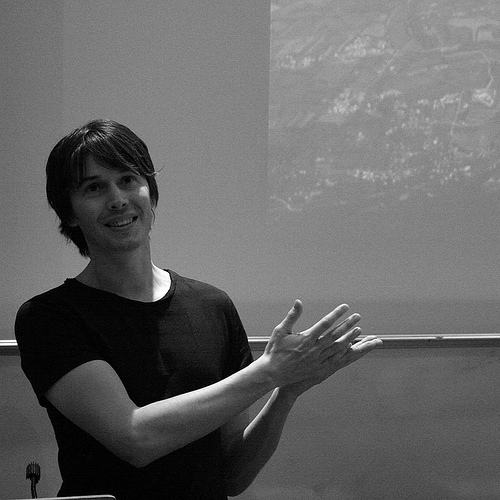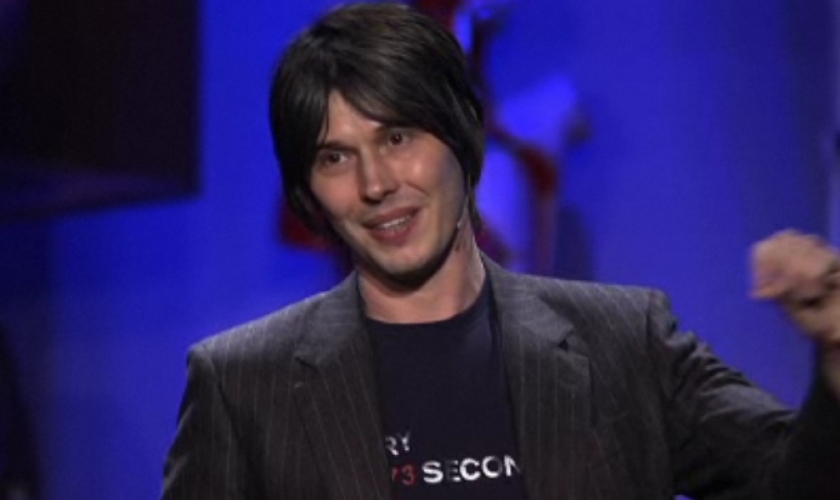
There’s been a lot of criticism concerning the media’s ability to report science recently. After all, what is “good” science reporting? The tabloid press is well known for hyping up scientific endeavour, and although some news outlets deliberately fill their columns with hyperbole, it doesn’t necessarily mean the science is being misrepresented, it just means the column in question is making a mountain out of a molehill.
Take Friday morning’s NASA LCROSS impact with the Moon. Those of us that were following the action on the various news outlets and online feeds were astonished by the sheer amount of fear, misinformation, disinformation and general weirdness that was being banded about. To be honest, I was shocked.
[I actually have a theory about one of the reasons why LCROSS was a particular target for many conspiracy wingnuts and doomsday woo, but I’ll save that for another article I’ll be writing shortly.]
Although a lot of the stuff was total silliness (i.e. the Moon feels pain, LCROSS might knock the Moon off it’s axis, many moonpeople might die etc. etc.), many worried individuals were concerned by the reports from the mainstream press. Let’s have a look at one of the claims being disseminated by a wide variety of news outlets in the run-up to, and the days following, LCROSS: The Moon was being “bombed” by NASA.
Did NASA “bomb” the Moon or not?
A huge number of people have a problem with the word “bomb” when connected with the LCROSS mission (I’m not fond of the description either). Could this one word be indicative of bad journalism? For the scientifically-minded, “bomb” doesn’t sound very scientific and would rather use “impactor.” For the non-specialist, “bomb” conjures thoughts of war, violence and Al Qaeda.
Is it just creative writing? Is it an inaccurate term? Is it wrong? First off, let’s look at the definition of “a bomb.”
bomb. n. An explosive weapon detonated by impact, proximity to an object, a timing mechanism, or other means.
The LCROSS Centaur was certainly not manufactured as a conventional weapon (as in, it didn’t carry explosives and couldn’t “detonate”), but just by its mass, could it cause an explosion like a bomb? In the case of the above definition, I’m referring to the “or other means” part.
Energy is energy
The Centaur was empty of propellent when it was sent careening toward the lunar south pole, but it still had a mass of 2366 kg (the size of an SUV). At the time of impact, it was travelling at a velocity of 2.5 km/s (2500 m/s). From this information alone, we can calculate the kinetic energy of Centaur at the moment it slammed into the lunar surface.
Ekinetic = 1/2 mv2 = 1/2 × 2366 (kg) × 25002 (m/s) = 7.4×109 Joules
This is the total energy the Centaur had when it was speeding toward the Moon, and according to basic physics energy is always conserved. So, when the Centaur ate Moon dust, where did this energy go?
We know energy wasn’t lost through the production of sound waves, as there’s no atmosphere on the Moon — In space, no one can hear your rocket go *bang* (although seismic waves would have been generated, propagating through the Moon’s surface). Also, lots of chunks of rock (from the surface) and shards of metal (from the Centaur) would have been ejected from the crater, each piece carrying a little piece of that kinetic energy away from the impact (much like very high-energy shrapnel). A lot of rock was displaced too, creating a crater 20 meters in diameter and 3 meters deep. Much of the kinetic energy will have also been converted to heat and light (the “flash” of the impact was captured by the LCROSS infrared camera).
What with all this heat, light and shrapnel, the Centaur impact sure is sounding like an exploding bomb. If you convert the 7.4×109 Joules into units more synonymous with weaponry, we find that the energy released during the Centaur impact was the equivalent of 1.8 tonnes of TNT exploding. That’s the size of a small bunker-busting bomb.
What’s more, kinetic weapons are a well-known method to take out orbiting satellites, so this concept isn’t a new one.
As much as it pains me, using an inflammatory statement like “NASA Bombed The Moon” is a correct analysis of the effects of the Centaur dead-weight hitting the Moon. However, the press milked “the Moon bombing” way beyond what I’d consider to be reasonable, taking full advantage of the violent connotations associated with this incredible NASA mission to probe for water on the Moon.
“I think that people are apprehensive about it because it seems violent or crude, but it’s very economical.” –Tony Colaprete, principal investigator for LCROSS (Feb. 2008)


